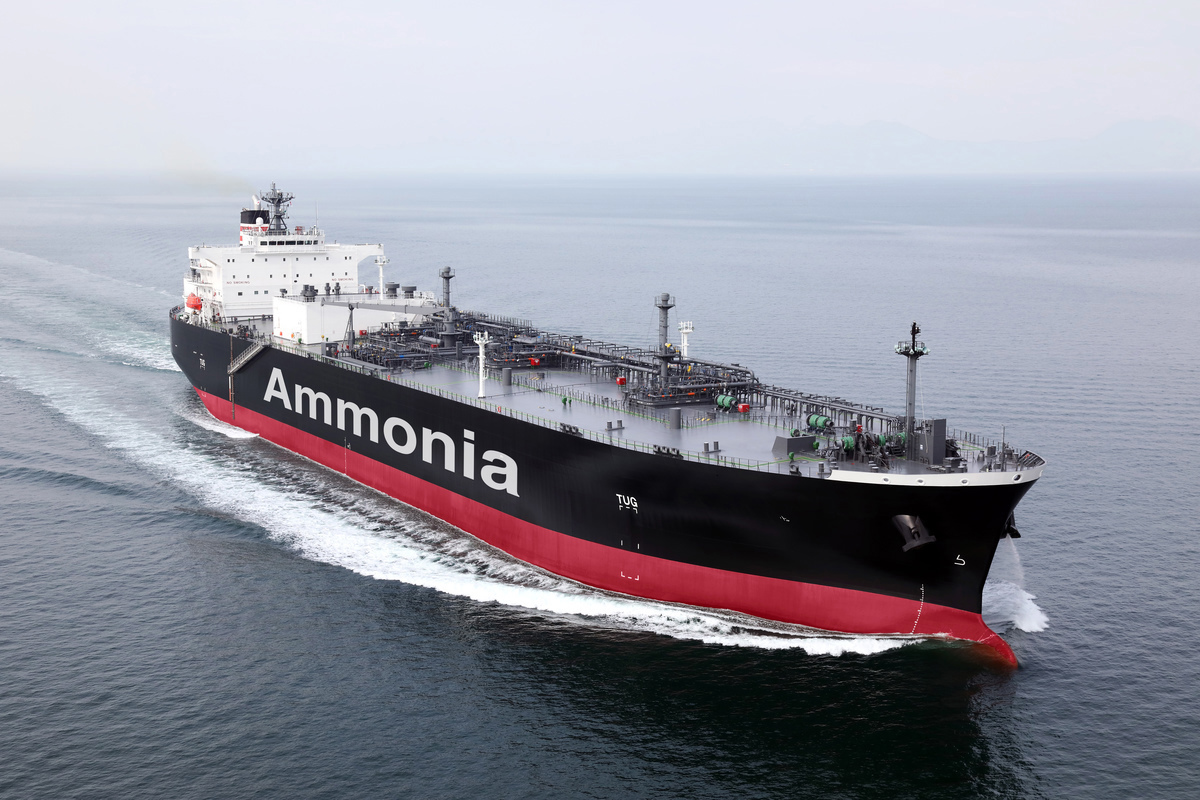Seafarer training vital to safe alternative fuels transition – DNV
Seafarers will need to undergo considerable training to handle new fuels like methanol or ammonia, according to the classification society DNV.
 PHOTO: A concept model of NYK’s ammonia-fuelled ammonia carrier. NYK
PHOTO: A concept model of NYK’s ammonia-fuelled ammonia carrier. NYK
By 2050, at least 310,000 seafarers are expected to be deployed on vessels powered by alternative fuels in accordance with the current greenhouse gas emission (GHG) target set by the International Maritime Organisation (IMO), DNV claims.
The IMO’s current GHG strategy from 2018 sets out a target to halve maritime GHG emissions by 2050. The maritime regulatory body is expected to revise this target at its 80th Marine Environment Protection Committee (MEPC) meeting scheduled for July this year.
Some member states of the IMO have called for net-zero shipping by 2050. In a net-zero scenario, at least 1.8 million seafarers will need training to handle alternative fuels, the classification society says.
Though fuels such as ammonia or methanol are currently shipped as cargo globally, the risks associated with fuelling vessels with them are still largely unknown.
DNV has found several safety challenges associated with alternative fuels:
- Explosion risks in pressurised storage, especially for hydrogen
- Flammability risk from low flash points, especially for hydrogen, but also for ammonia and methanol
- Toxicity to humans and the environment, especially for ammonia, but also for methanol
Ammonia's toxicity has been a key point of concern that needs to be addressed before it can be bunkered by vessels. Fuel handling rooms are among the riskiest areas onboard ammonia-powered vessels, Mærsk Mc-Kinney Møller Center’s ship design manager Thomas McKenney said at a webinar organised by the Global Maritime Forum last December.
With new alternative fuels and technologies being developed the industry will require a “higher-skilled” workforce, DNV thinks. New training courses should be designed to meet future decarbonisation demands.
Seafarer knowledge and a deeper understanding of fuel chemistry and digitalisation will be key to a safe transition, it adds.
By Nithin Chandran
Please get in touch with comments or additional info to news@engine.online






